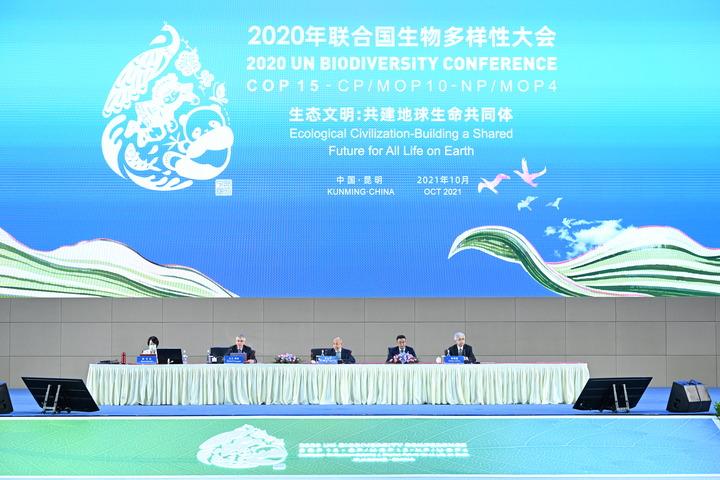KUNMING, Oct. 13 (Xinhua) -- Speakers at a key United Nations biodiversity meeting said Wednesday biodiversity and ecosystem-based approaches, or nature-based solutions, are essential to achieving the 2030 Sustainable Development Goals (SDGs) and related goals for climate change and food security.
"It is a global responsibility that all governments fully comply with the Sustainable Development Goals, integrate them into their internal regulations and strategic plans, implement these plans and monitor them as well," said Akif Ozkaldi, vice minister of agriculture and forestry of Turkey, at a roundtable themed "Biodiversity Conservation and Sustainable Development."
The Turkish vice minister co-chaired the roundtable with Zhang Zhanhai, chief engineer of China's Ministry of Natural Resources during the 15th meeting of the Conference of the Parties to the Convention on Biological Diversity (COP15) in Kunming, in southwest China's Yunnan Province.
Luthando Dziba, head of conservation services of South African National Parks, said in the introductory speech that biodiversity provides people with food resources, contributes to income directly and indirectly, and serves as a safety net, including the one for green recovery from the ongoing COVID-19 pandemic.
"Biodiversity shaped human civilizations in the past and will shape the future," said Gao Jixi, director of Center for Satellite Application on Ecology and Environment of the Ministry of Ecology and Environment, calling for greater efforts in preserving biodiversity and realize common prosperity of man and nature.
Representatives from around 30 countries including Turkey, Bolivia, Nepal, Russia, Sweden, Belgium, the United Kingdom, Singapore, Peru, the Republic of Korea and Mongolia attended the roundtable.
While sharing their countries' practices and achievements in coordinating biodiversity conservation and sustainable development, the representatives pledged further actions in biodiversity conservation under the post-2020 global biodiversity framework. Enditem




 A single purchase
A single purchase









